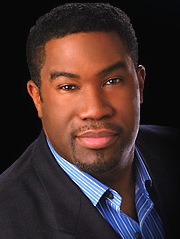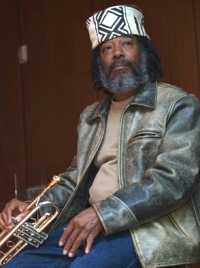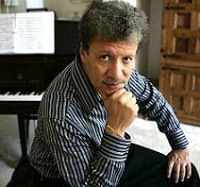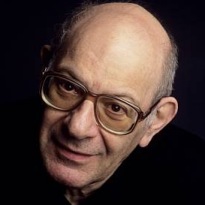I like the wider length. Shall I fix up the rest of the pages and go with the new look?
The Cleveland Plain-Dealer’s music critic Donald Rosenberg has been taken off the Cleveland Symphony beat–apparently for saying what many people (myself included) actually believe: Franz Welser-Möst is pretty much an unimaginative hack in charge of a great orchestra. Today’s Times.
UPDATE: Tim Mangan has more.

Congratulations to our pal Alex Ross, one of this year’s 25 MacArthur Fellows. There were three other music-related “Genius Grants,” as they’re more commonly called, for 2008:
Violinist Leila Josefowicz, instrument maker and composer Walter Kitundu, and saxophonist Miguel Zenón.
According to the MacArthur Foundation website “There are three criteria for selection of Fellows: exceptional creativity, promise for important future advances based on a track record of significant accomplishment, and potential for the fellowship to facilitate subsequent creative work.” Prospective fellows are nominated anonymously by a group of Nominators, and are selected by an anonymous Selection Committee.
 Baritone Eric Owens is busy this fall – his Met debut as General Leslie Groves in John Adams’ Dr. Atomic is just a start to his performances this season in New York, Atlanta, London and Los Angeles.
Baritone Eric Owens is busy this fall – his Met debut as General Leslie Groves in John Adams’ Dr. Atomic is just a start to his performances this season in New York, Atlanta, London and Los Angeles.
Today is the release of A Flowering Tree on Nonesuch Records with Owens as the storyteller, another role he created. I spoke with Eric Owens about this new recording, his Met debut and about working with composers.
MP3 file
 This Fall marks the twentieth season of provocative programming in New York City brought to you by Interpretations. Founded and curated by baritone Thomas Buckner in 1989, Interpretations focuses on the relationship between contemporary composers from both jazz and classical backgrounds and their interpreters, whether the composers themselves or performers who specialize in new music. To celebrate, Jerry Bowles has invited the artists involved in this season’s concerts to blog about their Interpretations experiences. Our first concert this season on 2 October, features the Myra Melford Quartet and Henry Threadgill’s Zooid + Talujon Percussion Ensemble. Michael Lipsey of Talujon has volunteered to write about how his group worked with the Mary Flagler Cary Charitable Trust to commission a new work from Henry Threadgill:
This Fall marks the twentieth season of provocative programming in New York City brought to you by Interpretations. Founded and curated by baritone Thomas Buckner in 1989, Interpretations focuses on the relationship between contemporary composers from both jazz and classical backgrounds and their interpreters, whether the composers themselves or performers who specialize in new music. To celebrate, Jerry Bowles has invited the artists involved in this season’s concerts to blog about their Interpretations experiences. Our first concert this season on 2 October, features the Myra Melford Quartet and Henry Threadgill’s Zooid + Talujon Percussion Ensemble. Michael Lipsey of Talujon has volunteered to write about how his group worked with the Mary Flagler Cary Charitable Trust to commission a new work from Henry Threadgill:
Contemporary music is exciting. People are trying new things, creating new works, involving new audiences members. The division between genres is the most open it has ever been. With that in mind, Talujon Percussion, Henry Threadgill and Zooid have teamed up to play on the Interpretations Series in honor of the series’ 20th season.
 Henry Threadgill is one of the most unique voices in contemporary improvisatory music. His resume is breath-taking, his skills are immense and his interests are wide and varied. About two years ago, Henry called me up a day before a Talujon concert. He told me he was interested in the group and wanted to come to our performance. We were happy to meet him and honored that he would come to one of our performances.
Henry Threadgill is one of the most unique voices in contemporary improvisatory music. His resume is breath-taking, his skills are immense and his interests are wide and varied. About two years ago, Henry called me up a day before a Talujon concert. He told me he was interested in the group and wanted to come to our performance. We were happy to meet him and honored that he would come to one of our performances.
A few days after the performance, Henry again called and asked if we would be willing to work on a new work. The answer was, of course, “Yes”. Henry decided to write a piece for Talujon and his ensemble, Zooid. We ended up applying to the Mary Flagler Carey Trust for the commission. We have used that commissioning vehicle in the past. Through this organization we were also able to commission a work for 4 drum sets by Julia Wolfe.
After meeting with Henry, he decided to compose a piece for each individual in Talujon.
We all gave Henry our wishlist of instruments. Henry then used our strengths in his composition. The piece that came out of this process uses four of our members, each with our own set-up. The piece is called “Fate Cues”.
We start rehearsals tomorrow and we are all excited. If you listen to Henry’s works you find that he is a fluid composer. He is continually asking more from the players. The charts are difficult, but that is not the emphasis of his works. He wants the musicians to move through the piece together as a strict unit. Each voice in individually created but maintaining its own presence. The rehearsal process is key.
Talujon is a group that has 18 seasons of unity. We know each other and feel very comfortable with each other. Much like any ensemble, we can feel our musical relationships and know how to support one another. We like to experiment and have practiced improvisation many, many times. Jazz improvisation is different than what we are used to. First, we just need to get past feeling uncomfortable about improvising in front of these great jazz masters in Zooid. I think that part will be ok. All the members have been in these situations before and as a group; Talujon thrives on making the uncomfortable, comfortable.
We like challenges and Henry is open and excited about the challenge.
It should be fun 🙂
*****
Myra Melford Quartet: Happy Whistlings; Henry Threadgill’s Zooid + Talujon: Fate Cues
Thursday October 2, 2008, 8pm at Roulette.
It’s my pleasure to pass on a terrific piece, written for S21, by Daniel Levitin. In addition to teaching at McGill University and being a real mensch, Levitin is the best-selling author of “This is Your Brain on Music,” which I personally recommend to all. Below, he gives us a look at his new book “The World in Six Songs: How the Musical Brain Created Human Nature.” — David Salvage
. . . . . .
It is unlikely that either language or music were invented by a single innovator or at a single place and time; rather, they were shaped by a large number of refinements, contributed to by legions of developers over many millenia and throughout all parts of the world. And they were no doubt crafted upon structures and abilities that we already had, structures we inherited genetically from proto-humans and our non-human animal ancestors. It’s true that human language is qualitatively different from any animal language, specifically in that it is generative (we can combine elements to create an unlimited number of utterances) and self-referential (we can use language to talk about language). The evolution of a single brain mechanism – probably located in the pre-frontal cortex – created a common mode of thought that underlies both the development of language and of art. I describe this in my new book The World in Six Songs: How the Musical Brain Created Human Nature.
One of the things that humans are good at and animals are not is encoding relations. We can easily learn the idea of something being bigger than another. If I ask even a five-year old to select the larger of three blocks in front of her, she will do this effortlessly. If I then bring in a new block that is twice the size of the one she just selected, she can shift her thinking, and choose that when I reask the question. A five-year old understands this. No dog can do this, and only some primates. This understanding of relations turns out to be fundamental for music appreciation; it is a cornerstone of all human musical systems. It permits us to recognize Happy Birthday as the same song regardless of what key it is sung in. It is also the basis of composition in nearly every musical style we know of. Take the opening to Beethoven’s Fifth. We hear three notes of the same pitch and duration, followed by a longer note at a lower pitch. Beethoven takes this pattern and moves it lower in the scale, so that the next four notes follow the same contour and rhythm. Our ability to recognize that this pattern is essentially the same, even though none of the notes are the same, is relational processing.
These modes of processing and the brain mechanisms that gave rise to them were necessary for the development of language, music, poetry, art and even science. Music may have played an important role in allowing us to communicate before there was language, and in forming a mental exercise that was fundamental to being able to manipulate objects in the real world. The available evidence is that music has been with our species from the very beginning, shaping social bonds, social systems, cooperative work projects, and the transmission of knowledge. Our current love of music is deeply rooted in evolutionary biology – our brain responds favorably to music because those of our ancestors who had musical brains found themselves at a distinct survival advantage.
REDCAT, the CalArts outpost in Walt Disney Concert Hall, opened its fifth season last night with the first of two programs in a renewal of the Creative Music Festival. Wadada Leo Smith was curator of the festival once again; he chose and assembled creators for two programs: “Music and the Voice” (last night) and “Music and Video” (tonight, but we already had tickets for Howard Shore’s “The Fly”). Smith opened the festival conducting the premiere of a new Smith work, “Central Park”, written for scat-singing baritone, with piano, string quartet, trumpet, clarinet, contra-alto clarinet, and percussion. Thomas Buckner was just right for the baritone instrumentalist; the whole ensemble seemed as if they had been playing together, with Smith’s music, for months instead of being a festival assembly of CalArts mainstays and New York performers.
 Wadada Leo Smith has a philosophy from which he composes. From our seats we could see both the piano score and the conducting score Smith used. This view made it clear how much improvisation went into the performance, and how much advance thought and consideration had preceded the improvising. A page of Smith’s conducting score, for example, had four rectangles and looked rather like a top-level conceptual diagram of a complex computer system. This page of the score covered three or four minutes of ensemble work and solos; during the period Smith might stop conducting and just listen before using his hands to regain the attention of the musicians before setting the beat and cuing the entrances for the next step in the evolution. Smith has developed a notation system called “Ankhrasmation”; he summarizes it here, but look at the symbolic example he provides on the page; the piano score had two or three pages with a symbol on the page.
Wadada Leo Smith has a philosophy from which he composes. From our seats we could see both the piano score and the conducting score Smith used. This view made it clear how much improvisation went into the performance, and how much advance thought and consideration had preceded the improvising. A page of Smith’s conducting score, for example, had four rectangles and looked rather like a top-level conceptual diagram of a complex computer system. This page of the score covered three or four minutes of ensemble work and solos; during the period Smith might stop conducting and just listen before using his hands to regain the attention of the musicians before setting the beat and cuing the entrances for the next step in the evolution. Smith has developed a notation system called “Ankhrasmation”; he summarizes it here, but look at the symbolic example he provides on the page; the piano score had two or three pages with a symbol on the page.
I liked Smith’s “Central Park”. I think Charles Ives would have liked it as well. The works are very different, but both present a kaleidoscope of sound. The two would make an interesting match on a program.
 From that high point, the festival moved higher, with a set of works by Anthony Davis, currently one of the musical stars at UCSD. Davis had reassembled his group “Episteme”; the current version comprises J.D. Parran on clarinet and contr-alto clarinet, Earl Howard on alto sax and on synthesizer, his UCSD colleague Mark Dresser on bass, and Davis himself on piano. They opened with an emsemble work “Of Blues and Dreams”, which made me think of an evolution that Modern Jazz Quartet might have taken. For the theme of “Music and the Voice” they were joined by son Jonah Davis in “Malcolm Little’s Aria” from X: The Life and Times of Malcolm X and by wife Cynthia Aaronson-Davis who sang the art song “Lost Moon Sisters” to the poem “Ave” by Diane Di Prima. A variation on the “Voice” theme was taken by two other works. “Goddess Variations” was a set of elaborations from a theme in his opera “Amistad”, a real showpiece for the Tatum-like fingers of Davis as pianist. The concluding work was a showpiece for Parran on clarinet, the second movement (“Loss”) from Davis’ clarinet concerto titled You Have the Right to Remain Silent. I want to hear the whole thing!
From that high point, the festival moved higher, with a set of works by Anthony Davis, currently one of the musical stars at UCSD. Davis had reassembled his group “Episteme”; the current version comprises J.D. Parran on clarinet and contr-alto clarinet, Earl Howard on alto sax and on synthesizer, his UCSD colleague Mark Dresser on bass, and Davis himself on piano. They opened with an emsemble work “Of Blues and Dreams”, which made me think of an evolution that Modern Jazz Quartet might have taken. For the theme of “Music and the Voice” they were joined by son Jonah Davis in “Malcolm Little’s Aria” from X: The Life and Times of Malcolm X and by wife Cynthia Aaronson-Davis who sang the art song “Lost Moon Sisters” to the poem “Ave” by Diane Di Prima. A variation on the “Voice” theme was taken by two other works. “Goddess Variations” was a set of elaborations from a theme in his opera “Amistad”, a real showpiece for the Tatum-like fingers of Davis as pianist. The concluding work was a showpiece for Parran on clarinet, the second movement (“Loss”) from Davis’ clarinet concerto titled You Have the Right to Remain Silent. I want to hear the whole thing!
 The second half of the program stepped back to the merely pleasant with Amina Claudine Myers and her trio, joined by a choir of 14 from CalArts. In “Manhattan” the trio provided solid framework as the members of the choir gave a series of scat singing solo riffs; some of the improvisations were really good. Two other works gave the choir the solo opportunities associated with African-American church enthusiasms. To me the really good solos didn’t compensate for the length and repitiveness in an evening that ran over three hours. But it couldn’t spoil the accomplishments of the evening.
The second half of the program stepped back to the merely pleasant with Amina Claudine Myers and her trio, joined by a choir of 14 from CalArts. In “Manhattan” the trio provided solid framework as the members of the choir gave a series of scat singing solo riffs; some of the improvisations were really good. Two other works gave the choir the solo opportunities associated with African-American church enthusiasms. To me the really good solos didn’t compensate for the length and repitiveness in an evening that ran over three hours. But it couldn’t spoil the accomplishments of the evening.
I had been disappointed in what seemed to be the limited scope of last season’s music series at CalArts. But this season really looks great!
I heard the world premiere of Steven Stucky’s August 4, 1964 with the Dallas Symphony Orchestra, Chorus and soloists with Jaap van Zweden last night in Dallas.
1. Not since the golden age of Handel oratorios has something like August 4, 1964 been so touching and well crafted; from the amazing libretto by Gene Scheer to the vocal soloist’s costumes, the evening was thought provoking and emotional. Supertitles brought clarity to the work, but with the diction of the soloists, it wasn’t needed but certainly appreciated. Still, small details like the italics for the Stephen Spender poem used in the score that hung on one of the mother’s wall after hearing about her son’s death, was brilliant to make a distinct between the rest of the libretto.
2. The mix between the Civil Rights and Vietnam War was just right – kudos for the balanced libretto from Gene Scheer, and for Stucky’s expressive score. Especially moving was the interaction of baritone Robert Orth and the chorus, often contrasting and supporting the storyline. Also the lyric lines of the female soloists, Laquita Mitchell and Kelley O’Connor, were not only performed exquistely, but had touching elements such as holding hands. (All four of the soloists were in period clothes of the 1960s, complete with hats for the women and slender ties for the men held by tie bars.) Staging had been thought about, complete with an oval office set, but was left undone without sufficient rehearsal time. Also, there was an idea to have an audio prelude or overture, with the actual White House tapes and news reports about this day in 1964. It was decided with the Meyerson’s acoustics, NOT to play it beforehand, but if you catch a pre-concert talk they play it there…perhaps it should be put online as well?
 1931-2008. Ouch.
1931-2008. Ouch.
Here’s a nice appreciation from Gramophone.
 Tomorrow night is the world premiere of Steven Stucky’s August 4, 1964 with the Dallas Symphony Orchestra, Chorus and soloists.
Tomorrow night is the world premiere of Steven Stucky’s August 4, 1964 with the Dallas Symphony Orchestra, Chorus and soloists.
I spoke with Stucky last summer in Ithaca, NY about the work. Listen to the interview here. (about 4 minutes)
I’ll have more coverage of the premiere tomorrow night and reactions on Friday.
Read more (including the NY Times piece from Sunday and the program notes here.)